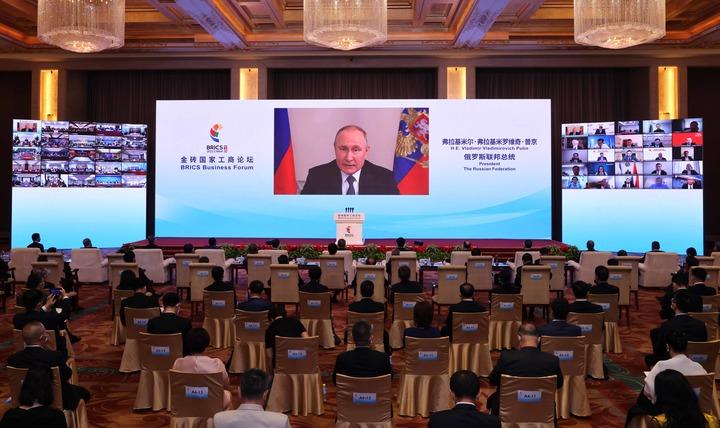BEIJING, June 22 (Xinhua) -- Some Western observers need to resist the temptation of seeing the growing BRICS from the perspective of geopolitical game.
BRICS is the acronym for an emerging-market group that includes Brazil, Russia, India, China and South Africa. The BRICS countries account for about a quarter of the world economy and over 40 percent of the global population. Bearing the development expectations of emerging markets and developing countries, the BRICS cooperation mechanism neither aims at anyone nor is it for prevailing over and replacing anyone.
On the contrary, it resists the Cold War mentality and bloc confrontation and injects stability into international relations when turbulent changes abound.
Build walls or pave roads? It is a question that any international organization or cooperation mechanism must answer.
The unity and self-endeavor of the BRICS countries should not be translated into building a "small courtyard and high wall" and creating a so-called "parallel system" to split the world, but paving way for development, security, equity and justice.
BRICS cooperation aims to pave way for development. World economic recovery is facing multiple challenges amid pandemic and major changes both unseen in a century. As developing countries, BRICS members are keenly aware of the importance of supporting growth and development and improving people's livelihoods. As emerging markets with global influence, BRICS members have become an important engine of global economic growth.
BRICS nations function as a task force that gets things done instead of a talk shop. Under the theme of "Foster High-quality BRICS Partnership, Usher in a New Era for Global Development," the 14th BRICS Summit helps deepen BRICS cooperation and deliver concrete results.
BRICS cooperation aims to pave way for security. BRICS nations have become an important pillar of global stability considering their economic size, land area and population. By working together to address security threats and challenges, BRICS countries are practicing true multilateralism.
BRICS cooperation also aims to pave way for equity and justice. There is not a member that tries to impose its own terms on others within BRICS. Under the mechanism, a win-win stage is created to push back "small circles" that seek bloc confrontation. Developing countries are provided with a platform for cooperation and development, and global governance and international order are moving toward equity and justice.
When the world is still facing intertwined challenges of the COVID pandemic and regional conflicts, the BRICS mechanism shows no signs of "cracking" or "fading color," but releases more vibrancy and vitality.
The rise of BRICS countries comes from economic globalization. These countries understand that only openness can lead to progress, and only inclusiveness can make progress sustainable.
The development of emerging markets and developing countries does not aim to steal anyone's piece of the pie but rather hopes to make the pie of the global economy bigger.




 A single purchase
A single purchase









